Top 22 Quantum Computing Experts
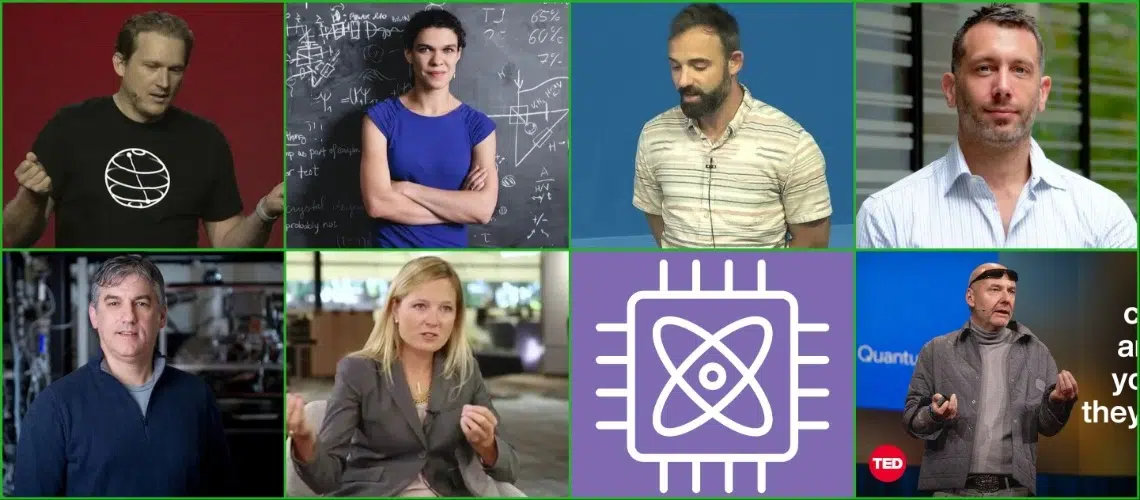
Quantum computing has rapidly progressed from theory to practice, thanks to a global community of experts driving innovation in both software and hardware.
Below is an updated list of the world’s leading quantum computing experts. These individuals stand out for their hands-on contributions to quantum technology – from open-source code and startups to hardware breakthroughs, influential blogging, roles at major quantum firms, and competition accolades. Each profile highlights why they’re among the best, along with links to their public profiles.
- Hartmut Neven
- Jack Hidary
- Nathan Killoran
- Jay Gambetta
- Yudong Cao
- Krysta Svore
- Pete Shadbolt
- Jungsang Kim
- Christopher Monroe
- Michelle Simmons
- Maria Schuld
- Michael Biercuk
- William Hurley
- Craig Gidney
- Ryan Babbush
- Dave Bacon
- Julian Kelly
- Marissa Giustina
- Austin Fowler
- David Ryan
- Iordanis Kerenidis
- Stephanie Wehner
Now, let’s delve deeper into their remarkable contributions and impact.
Hartmut Neven

Nationality: German-American
Hartmut is the founder and engineering director of Google Quantum AI, guiding Google’s quantum computing efforts from their inception. Under Neven’s leadership, Google achieved landmark results like the 2019 quantum supremacy experiment and, in 2024, a breakthrough in quantum error correction with the 105-qubit “Willow” processor.
This earned Neven and colleagues a 2024 Physics World “Breakthrough of the Year” for demonstrating error rates dropping exponentially with qubit count. A longtime innovator at Google, Neven has consistently pushed practical quantum hardware forward, and he’s an influential voice explaining quantum computing’s potential (even giving a TED Talk in 2024).
His vision and hands-on direction of Google’s quantum lab make him one of the field’s most impactful figures.
- Linkedin: Hartmut Neven
Jack Hidary
Quantum is not just about computing — it’s about a new way to process information that will impact cybersecurity, drug discovery, and beyond.
Nationality: American
Jack is a tech entrepreneur driving quantum computing at the intersection with AI. As CEO of SandboxAQ (an Alphabet spin-off), Hidary leads a team building enterprise software that uses both quantum tech and AI for applications like post-quantum cryptography and materials simulation.
He is also the author of “Quantum Computing: An Applied Approach”, one of the leading textbooks that provides hands-on coding exercises for learners. With a background as a successful internet entrepreneur, Hidary turned his focus to quantum around 2016 at Google X, where he established early quantum research programs. Now at SandboxAQ, he emphasizes practical solutions (for example, helping companies migrate to quantum-safe encryption). Jack is a visible advocate for quantum technology, often speaking at forums like the World Economic Forum.
His unique blend of business acumen, coding knowledge, and public education efforts make him a pivotal figure accelerating real-world quantum adoption.
- Linkedin: Jack Hidary
- X (Twitter): @jackhidary
Nathan Killoran
Nationality: Canadian
Nathan is a leading quantum software developer and researcher in quantum machine learning. As Head of Software at Xanadu (Toronto), he spearheaded the creation of PennyLane, a popular open-source framework for hybrid quantum-classical computing and machine learning.
PennyLane, which Nathan co-founded, allows training quantum circuits with gradient-based optimizers, and has become a standard tool for quantum ML researchers. Killoran’s own research (he earned his PhD in 2014) includes one of the first proposals of quantum differentiable programming and he demonstrated the first quantum VQE (Variational Quantum Eigensolver) on photonic hardware. At Xanadu, he helps integrate their photonic quantum processors with practical algorithms. He’s also an active open-source contributor on GitHub and a mentor in the community.
By combining deep theoretical ideas with concrete software (his motto: “code as much as you publish”), Nathan has empowered developers worldwide to explore quantum computing.
- Linkedin: Nathan Killoran
- Github: co9olguy
Jay Gambetta
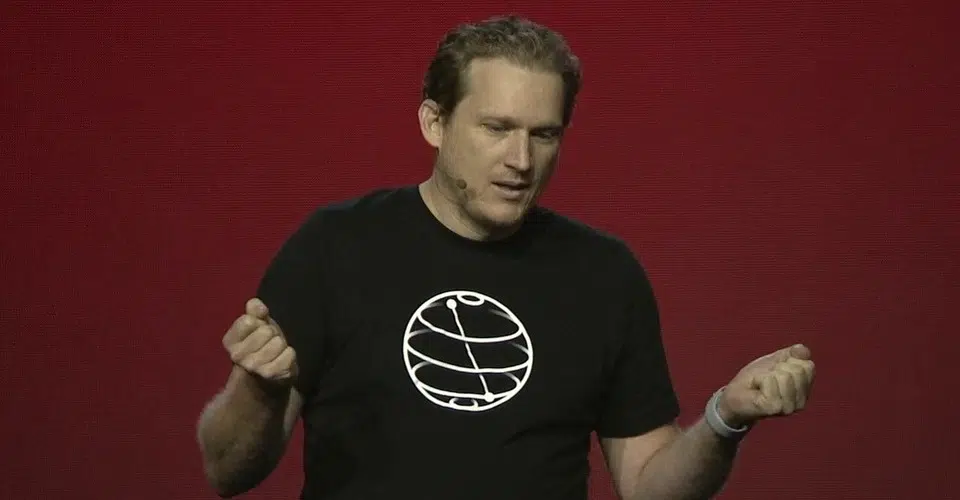
Nationality: American
As IBM’s Vice President of Quantum and an IBM Fellow, Jay has overseen the deployment of the world’s largest fleet of quantum computers and spearheaded the development of Qiskit, IBM’s open-source quantum software framework.
Under his leadership, IBM’s team built over 70 quantum systems in the last eight years, bringing quantum hardware to the cloud for 600,000+ users. Gambetta’s research background in quantum information and commitment to real-world utility earned him the 2024 “Industry Pioneer in Quantum” award.
He continues to drive quantum advantage efforts by integrating hardware and software innovation.
- Linkedin: Jay Gambetta
- X (Twitter): @jaygambetta
Yudong Cao
Nationality: Chinese-American
Yudong is recognized for pushing quantum algorithms into real-world applications. He co-founded Zapata Computing in 2017 and as CTO helped build its platform for quantum machine learning and chemistry.
Yudong’s academic work (PhD at Purdue) included advances in quantum optimization and quantum chemistry algorithms. At Zapata he drove the development of the Orquestra software for orchestrating hybrid quantum-classical workflows, enabling enterprise use cases on current quantum hardware. In 2023, he took on a new role at BCG X (the tech build arm of Boston Consulting Group) to continue bridging the gap between quantum R&D and industry adoption. Yudong is known for pragmatic assessments of quantum’s impact – for example, discussing the challenges of “quantum advantage” on podcasts.
As a still-active coder and scientist, with one foot in startups and one in research, he epitomizes the new generation of quantum computing leaders.
- Linkedin: Yudong Cao
- Github: yudongcao
Krysta Svore
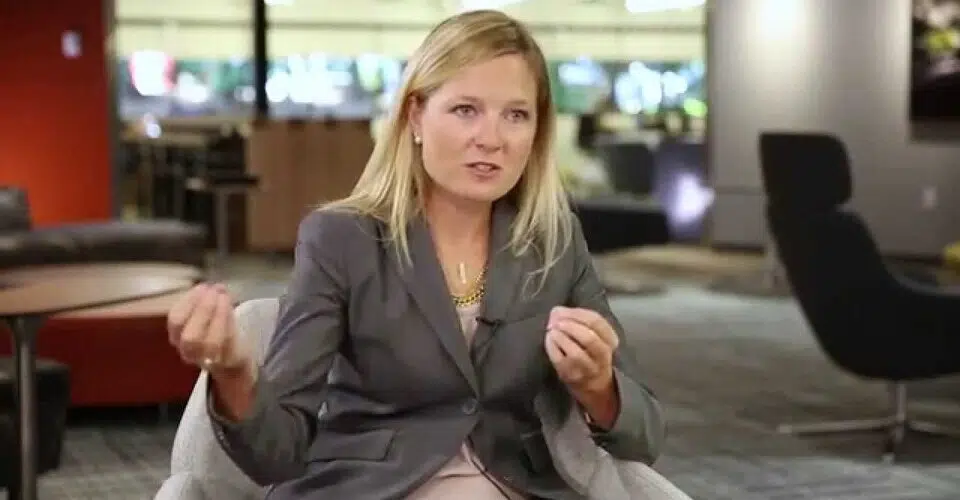
Nationality: American
Krysta leads Microsoft’s quantum software and systems development as a Technical Fellow and VP of Azure Quantum. She heads Microsoft’s efforts to build a scalable, fault-tolerant quantum computer, including the integration of quantum hardware into the Azure cloud.
Svore’s team has delivered tools like the Q# programming language and Azure Quantum service, bringing the first quantum computers onto a major cloud platform. A respected computer scientist, she’s known for pioneering work in quantum error correction (her PhD was on thresholds for fault-tolerance) and for co-inventing quantum algorithms for machine learning. In 2024, she highlighted Microsoft’s progress on “qubit virtualization” – creating reliable logical qubits across different hardware.
Svore’s blend of deep research and practical engineering makes her a key leader in the quest for scalable quantum computing.
- Linkedin: Krysta Svore
- X (Twitter): @krystasvore
Pete Shadbolt
Nationality: British
Pete is a quantum optics expert and the co-founder & Chief Scientific Officer of PsiQuantum, a Silicon Valley startup aiming to build a million-qubit photonic quantum computer. With a PhD from University of Bristol, Pete demonstrated early photonic quantum computing feats like the first implementation of the Variational Quantum Eigensolver algorithm on a photonic chip.
He then joined forces with professors Jeremy O’Brien and Terry Rudolph to found PsiQuantum in 2016, bringing his experimental savvy to their photonics approach. PsiQuantum integrates single-photon sources and detectors on large silicon chips, leveraging existing chip fabrication – a vision Shadbolt has helped turn into actual hardware prototypes. He proudly reported PsiQuantum’s success in manufacturing quantum photonic chips in commercial semiconductor foundries. Pete also focuses on the software and architecture side; he has co-authored work on fault-tolerant photonic computing and often speaks on the challenges of scaling to useful quantum systems.
Balancing scientific rigor with startup execution, Shadbolt is a driving force in photonic quantum computing and undoubtedly among the top experts moving the industry toward large-scale machines.
- Linkedin: Pete Shadbolt
- X (Twitter): @PeteShadbolt
Jungsang Kim
Nationality: Korean-American
Jungsang is a pioneer of trapped-ion quantum computing who bridges academia and industry. At Duke University, he developed modular, fault-tolerant quantum computing architectures for ion-trap systems, and he co-founded IonQ in 2015 – the first public pure-play quantum computing company.
Kim’s contributions range from new ion trap hardware designs to quantum compiler techniques that reduce gate counts. Under his technical guidance, IonQ built some of the world’s most advanced ion-trap quantum computers. In recognition of his work blending research and commercialization, he was honored as the 2024 “Academic Pioneer in Quantum.”
Kim remains actively engaged in improving quantum hardware and fostering industry collaboration, solidifying his status as a top quantum hardware expert.
- Linkedin: Jungsang Kim
Christopher Monroe
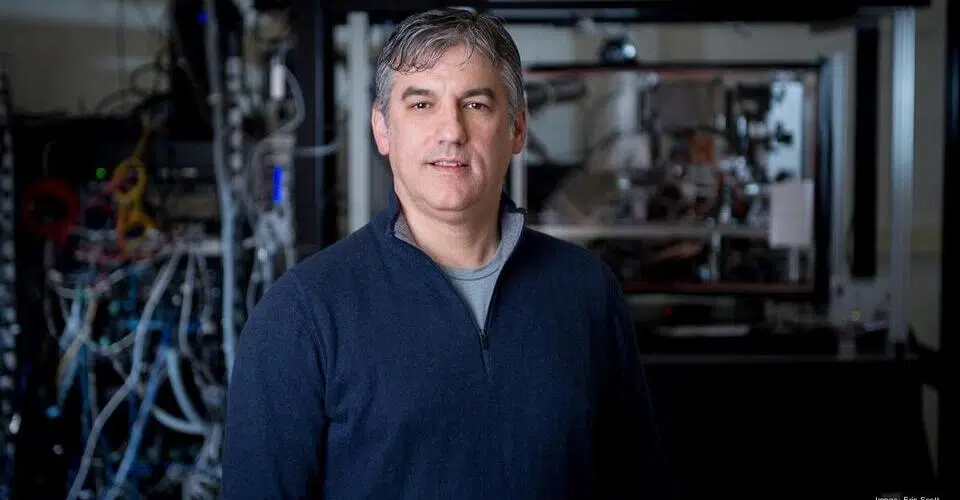
Nationality: American
Chris is a leading quantum physicist who has turned lab results into real quantum tech.
He co-founded IonQ along with Jungsang Kim, bringing decades of his research at University of Maryland (UMD) in trapped-ion quantum gates to the startup world. Monroe’s group was first to demonstrate a fundamental quantum logic gate with ions and has set records for quantum teleportation and modular quantum networks. At IonQ, he helped develop machines that achieved the best quantum volume metrics in the industry. Monroe continues to advance quantum architectures (in 2023 he started a new venture on quantum networks) and is known for championing an approach combining high-quality qubits with photonic interconnects.
A member of the U.S. National Academy of Sciences, Monroe is both an academic luminary and a hands-on builder of quantum computing hardware, making him one of the top experts bridging theory and practice.
- Linkedin: Christopher Monroe
Michelle Simmons
Nationality: British-Australian
Michelle is a quantum hardware trailblazer known for her work on silicon-based quantum computing. As founder and CEO of Silicon Quantum Computing (SQC) in Australia, she and her team achieved a world-first by manufacturing an atomic-scale integrated silicon quantum processor chip in 2022.
This 3-qubit device, built atom-by-atom in silicon, successfully simulated the behavior of a small molecule – a major breakthrough that Simmons called a “major milestone” on the way to useful quantum computers. Michelle has spent over 20 years researching phosphorus dopant qubits in silicon; earlier, she demonstrated one of the first single-atom transistors. As a Professor at UNSW Sydney, she built a large research center for quantum computing and set the ambitious goal of a 10-qubit silicon chip by 2022 (which her startup met). Named Australian of the Year in 2018 for her scientific leadership, Simmons continues to push for scalable, manufacturable quantum processors using existing semiconductor techniques.
Her combination of entrepreneurship and deep engineering skill in silicon quantum devices makes her one of the top hardware-focused experts globally.
- Linkedin: Michelle Simmons
Maria Schuld
Quantum machine learning is not just about speedups — it’s about asking different questions and seeing data in a new way.
Nationality: German
Maria is a quantum machine learning (QML) trailblazer who bridges academia and software development. As a senior researcher at Xanadu and a core developer of PennyLane, Maria has helped make advanced QML techniques accessible to programmers.
She has spent the last decade exploring how quantum computers can learn from data, co-authoring one of the first textbooks on QML and numerous influential papers. Maria’s work on variational quantum classifiers and quantum embedding methods is widely cited. In addition to research, she actively writes tutorials and demos (e.g. on PennyLane’s blog) to educate the community. Her passion for growing the field is evident – she’s a frequent speaker and helped launch the Quantum Machine Learning meetup series.
By “making quantum machine learning a reality one day” through both code and theory, Maria Schuld has become one of the most respected voices in QML and a role model for open-source scientific software.
- Linkedin: Maria Schuld
Michael Biercuk
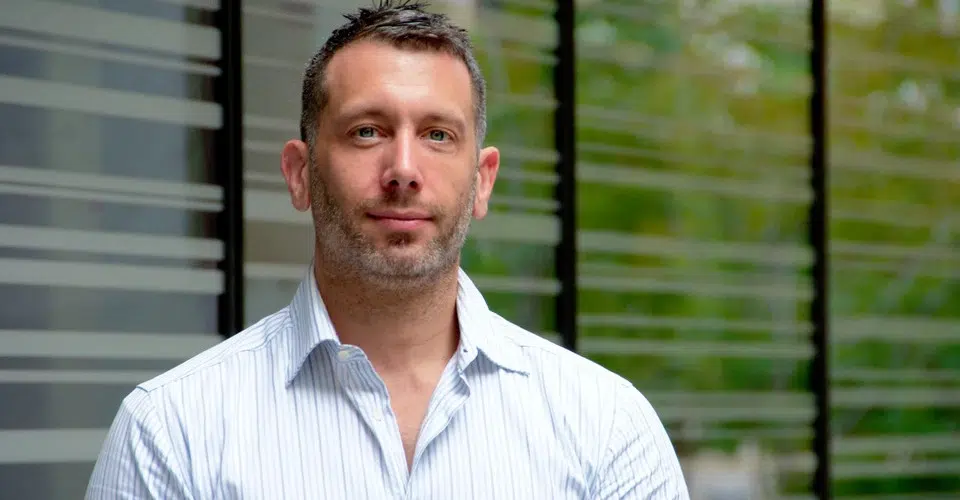
Nationality: Australian
Michael is a quantum control expert turned entrepreneur, known for bringing error-correction solutions to real quantum devices. Formerly a professor at the University of Sydney, Biercuk founded Q-CTRL in 2017 to commercialize techniques for stabilizing qubits.
As Q-CTRL’s CEO, he has applied machine learning and control theory to dramatically improve qubit fidelity and runtime, tackling the noise that plagues quantum hardware. “Quantum computers right now almost never give you the right answer”, Biercuk explains – Q-CTRL’s software “bumps that up thousands of times” by filtering out errors. His team’s tools (like Black Opal and Fire Opal) are used by IBM, IonQ and others to enhance performance.
By focusing on practical error reduction and founding a startup now spanning quantum computing and sensing, Biercuk has accelerated the field’s progress toward useful quantum advantage.
- Linkedin: Michael Biercuk
- X (Twitter): @MJBiercuk
William Hurley
Nationality: American
William (better known as Whurley) is a serial entrepreneur and open-source advocate bringing quantum computing to developers. He founded Strangeworks in 2018 to create a user-friendly quantum computing platform, aggregating hardware access and software tools for the community.
Whurley’s vision is a “welcoming, open, and accessible quantum computing infrastructure”. Under his leadership, Strangeworks has partnered with IBM and others to offer cloud access to multiple quantum processors, and it actively supports open-source projects and education. A popular speaker and blogger, Whurley has a talent for demystifying complex tech (he previously led successful open-source projects in software). He’s also known for fostering a vibrant quantum developer community, exemplified by Strangeworks’ collaborations with IBM Q and OpenQASM.
By lowering barriers to entry and still writing code himself, Whurley is empowering the next generation of quantum programmers.
- Linkedin: William Hurley
- X (Twitter): @whurley
Craig Gidney
Nationality: American
Craig is a quantum software engineer at Google renowned for his algorithmic ingenuity. He has been a key contributor to Google’s Quantum AI team, with expertise in quantum error correction and cryptography.
Craig is perhaps best known for co-inventing an improved quantum algorithm for factoring large numbers: in 2019, he and a colleague found a way to factor RSA-2048 using 20 million qubits in 8 hours (vastly reducing qubit requirements vs. previous estimates). This result made headlines as it refined the timeline for quantum cryptography threats. At Google, Gidney has also developed tools for simulating quantum circuits and optimizing error-correction codes. He is one half of the Bacon-Shor code (an error-correcting code bearing his name) and contributed to Google’s quantum supremacy experiments. Known in the open-source community, Craig posts detailed explanations of quantum algorithms on his blog and GitHub.
His combination of practical coding skills and algorithmic breakthroughs cements his place among the top quantum computing experts.
- X (Twitter): @CraigGidney
- Github: Strilanc
Ryan Babbush
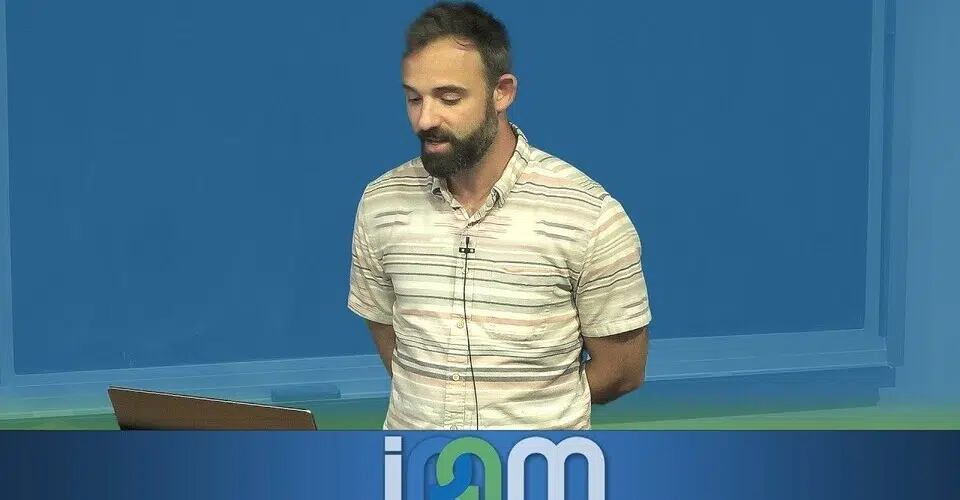
Nationality: American
Ryan leads quantum algorithms research at Google and is widely recognized for his work on quantum chemistry. As the Director of Google Quantum AI’s Algorithms & Applications team, he oversees efforts to discover valuable uses for quantum computers.
Ryan has authored dozens of papers developing more efficient algorithms for simulating molecules and materials on quantum hardware. In fact, he is best known for pioneering techniques that dramatically reduce the resources needed for quantum chemistry simulations – crucial for applications like drug design and battery development. Babbush has been with Google’s quantum project since its early days in 2013, and his team explores quantum machine learning and cryptography algorithms as well. In 2024, he co-published results achieving fault-tolerant logical qubits in partnership with Quantinuum, inching closer to error-corrected computation.
Known as both a manager and a hands-on scientist, Ryan embodies the “quantum algorithms expert” turning abstract theory into concrete protocols for current and future machines.
- Linkedin: Ryan Babbush
- Github: babbush
Dave Bacon
Nationality: American
Dave is a quantum computing software veteran who has contributed to both groundbreaking research and real industry products. At Google, he was a Senior Staff Software Engineer leading the quantum software team – he helped launch Google’s quantum cloud service and was “a key driver” of the 2019 quantum supremacy announcement.
Dave is also famous in the quantum community for co-inventing the Bacon-Shor code, an error-correcting code for quantum memory. In 2020, he joined IonQ as Vice President of Software to help architect user interfaces and compilers for IonQ’s trapped-ion systems. With a PhD in theoretical physics, Dr. Bacon earlier served as a University of Washington research professor and ran one of the first quantum computing blogs (“The Quantum Pontiff”). His rare blend of top-tier coding skills, algorithm design (e.g., in error correction), and experience across two leading quantum companies makes him a go-to expert on how to actually program quantum computers.
Dave’s long track record and continued leadership in software stack development secure his place among the top experts.
- Linkedin: Dave Bacon
- X (Twitter): @dabacon
- Github: dabacon
Julian Kelly
Nationality: American
Julian is an experimental physicist who has helped design and build Google’s cutting-edge superconducting quantum processors. Now Director of Quantum Hardware at Google Quantum AI, he has over a decade of experience spanning the “full stack” of quantum hardware – from chip design and nanofabrication to cryogenic control systems.
Julian was the lead designer of Google’s 72-qubit Bristlecone processor and developed the automated calibration software (“Optimus”) that tunes Google’s qubits daily. He previously led the team that built the control electronics and firmware enabling Google’s quantum computers to operate. Kelly’s PhD work at UCSB under John Martinis produced record high-fidelity gates and the first demonstration of quantum error correction with superconducting qubits. His hardware contributions were pivotal in the 2019 quantum supremacy experiment and the 2022 quantum error correction milestone.
Few people worldwide have Julian’s hands-on expertise in scaling up quantum chips, making him a top hardware implementer in the field.
- Linkedin: Julian Kelly
Marissa Giustina
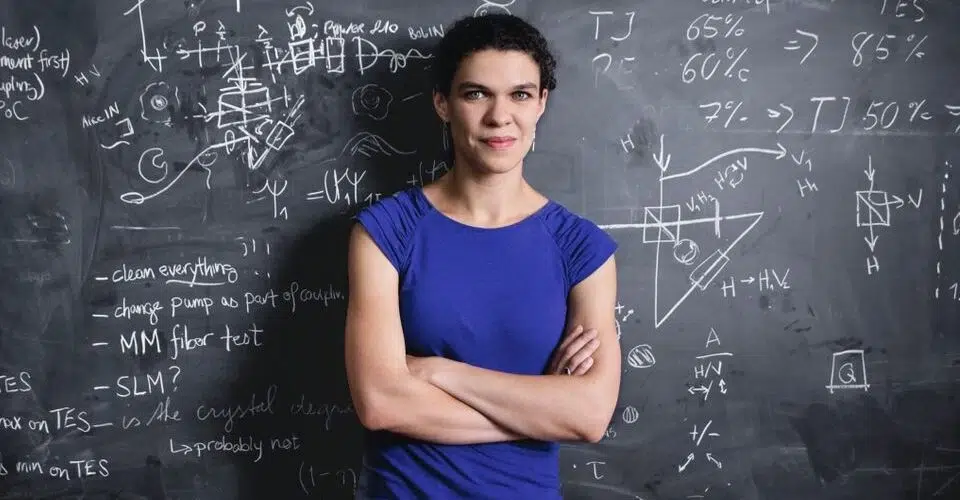
Nationality: American
Marissa is a senior research scientist and hardware engineer on Google’s quantum team, known for her work on quantum supremacy and foundational quantum physics experiments. At Google, Marissa led efforts in quantum chip packaging and cryogenic hardware integration – contributions that were vital to achieving the high-fidelity “Sycamore” processor used in the 2019 quantum supremacy demonstration.
She has a unique background bridging experimental quantum optics and engineering; during her PhD with Anton Zeilinger, she built a 60-meter optical experiment that closed loopholes in Bell’s inequality tests. Bringing that precision to Google, Giustina drove both research and engineering developments for the “quantum supreme” processors. She now serves as a technical spokesperson for Google Quantum AI, clearly communicating quantum advances to public and policy audiences.
Marissa’s combination of hands-on skill (literally wiring up quantum chips) and talent for science communication makes her an influential figure proving that large-scale quantum computers are possible.
- Linkedin: Marissa Giustina
Austin Fowler
Nationality: Australian
Austin is a foremost authority on quantum error correction who has turned theory into practice for today’s quantum processors. He spent a decade at Google Quantum AI as a staff researcher leading the Quantum Error Correction (QEC) team. Fowler is one of the architects of the surface code, the leading error-correcting code for 2D qubit layouts, and he developed many of the protocols and software implementations that underlie Google’s error correction experiments.
His 2012 paper on surface-code error thresholds is a cornerstone of the field. At Google, he was instrumental in experiments like the 2021 demonstration of shrinking logical error rates with increasing qubits. In 2022, Austin joined Q-CTRL as Head of Quantum Architecture (applying error mitigation and QEC in software) – further emphasizing practical implementations. He earned his PhD in 2005 specializing in QEC and has remained focused on pushing quantum systems toward fault-tolerance. Colleagues often cite Fowler’s deep intuition for both physics and coding. Thanks to experts like him, the community is steadily conquering quantum’s error problem.
Austin Fowler’s enduring contributions make him a top expert on building reliable quantum computers.
- Linkedin: Austin Fowler
David Ryan
Nationality: Australian
David is a quantum computing product leader and open-source advocate who writes practical explainers – most notably “Understanding the Software Stack in Quantum Computing”.
He led product at Quantum Brilliance, where he helped open-source the Qristal SDK and drove developer-tooling initiatives bridging HPC and quantum. At the Open Source Research Group (OSRG), Ryan launched the OpenQase quantum use-case library and presented it at Q2B Tokyo 2025. He also speaks widely on building open, reproducible quantum software stacks, including a 2023 Open Source Summit talk on entering quantum via open source.
- Linkedin: David Ryan
Iordanis Kerenidis
Nationality: Greek
Iordanis is a quantum algorithms expert who is pioneering real-world applications, especially in finance and big data. A research director at CNRS in France and Head of Quantum Algorithms at QC Ware, Kerenidis is well known for co-inventing quantum recommendation systems – an algorithm that showed how a quantum computer could speed up analyzing user preferences (like those used by Netflix).
He has also published influential work on quantum machine learning and cryptography. In his role at QC Ware (a leading quantum software startup with offices in Silicon Valley and Paris), Iordanis leads a team that develops algorithms for near-term quantum hardware in chemistry, optimization, and machine learning. For example, in 2023 his team demonstrated a hybrid quantum approach to portfolio optimization for finance. He frequently speaks at industry events to explain which quantum use-cases might materialize first. With a foot in academia (as an adjunct professor at University of Paris) and industry, Kerenidis exemplifies the algorithmic innovator who also codes and tests on real devices.
His balanced perspective and contributions make him one of the top minds charting the path toward quantum advantage in practical tasks.
- Linkedin: Iordanis Kerenidis
Stephanie Wehner
Nationality: German
Stephanie is one of the leading experts on quantum networking and the quantum internet, a field that sits directly adjacent to scalable quantum computing. She is an Antoni van Leeuwenhoek Professor at TU Delft and a director within the European Quantum Internet Alliance, driving coordinated work on architectures, protocols, and roadmaps for multi-node quantum networks.
Her work is practical in the sense that it connects theory, hardware constraints, and network engineering into implementable stages. QuTech has been central to building a Europe-wide program around quantum networking, and Wehner is a visible technical leader translating that into milestones that labs can execute and industry can track.
- Linkedin: Stephanie Wehner
- X (Twitter): @StephWehner
Wrap Up
These experts represent exceptional talent, making them extremely challenging to headhunt. However, there are thousands of other highly skilled IT professionals available to hire with our help. Contact us, and we will be happy to discuss your hiring needs.
Note: We’ve dedicated significant time and effort to creating and verifying this curated list of top talent. However, if you believe a correction or addition is needed, feel free to reach out. We’ll gladly review and update the page.
Frequently Asked Questions
Yes. Research institutions, governments, and technology companies continue to invest heavily in quantum computing, creating steady demand for engineers in this field.
Experienced specialists often charge $80 to $150 per hour, with higher rates for advanced expertise in quantum algorithms or hardware.
They guide organizations in exploring quantum algorithms, simulating use cases, integrating quantum services with classical systems, and assessing the long-term potential of the technology.
Quantum experts usually have good skills in physics, maths or computer science. They often do research or work hands-on with hardware or software. Many contribute to open-source projects or work with leading labs/startups.
Yes. The talent pool is small, since expertise requires advanced knowledge in physics, mathematics, and computer science, making qualified candidates harder to find than in most IT domains.
Leaders include IBM, Google, Microsoft, and D-Wave, while financial firms like JPMorgan Chase and automotive companies such as Volkswagen have also experimented with quantum applications.
